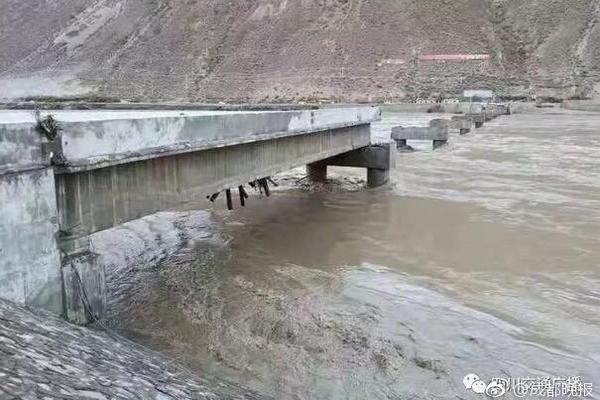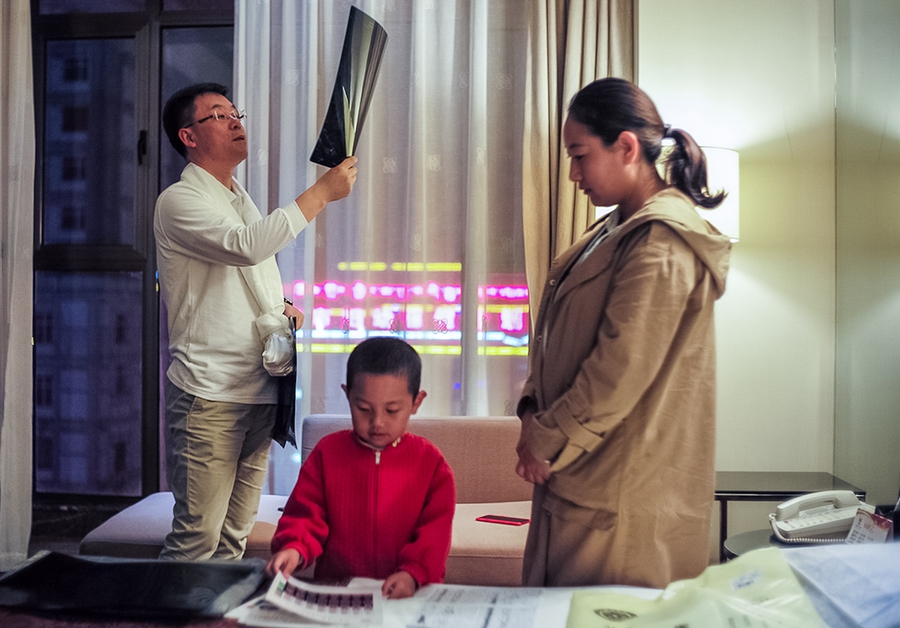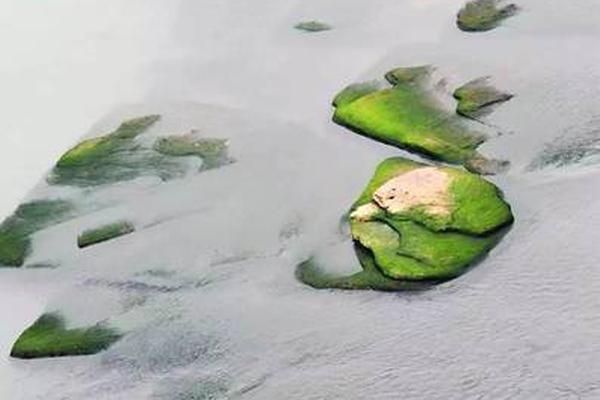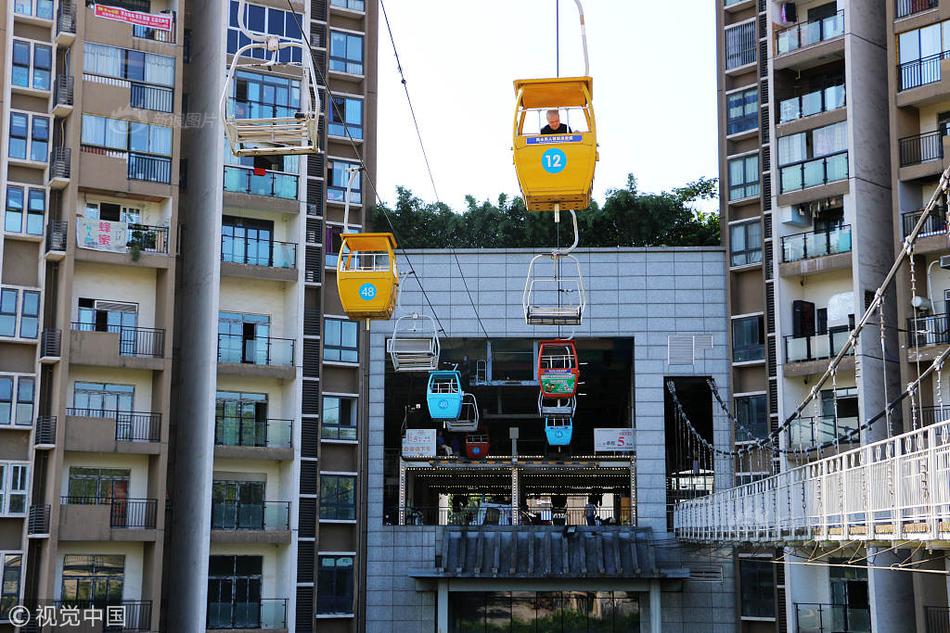casino slots download free
2025-01-05
 casino slots download free
News & Notes: Lamar Jackson Is Focused on Starting Faster - BaltimoreRavens.comFaraday Future Secures $30 Million Financing to Strengthen the Company’s Core Business and Continued Ramp-Up of the Faraday X (FX) Strategy
casino slots download free
News & Notes: Lamar Jackson Is Focused on Starting Faster - BaltimoreRavens.comFaraday Future Secures $30 Million Financing to Strengthen the Company’s Core Business and Continued Ramp-Up of the Faraday X (FX) Strategy
Summary Different airlines have varied policies when it comes to Christmas crackers, a complex item for air travel. Snow globes must adhere to liquid restrictions, while wrapped gifts can create issues during security screening. Airlines permit a wide range of solid foods but limit liquids, such as alcoholic beverages and branded items. During the Christmas season, most travelers require information on what festive products are permitted on planes. Whether traveling to see family or going on a holiday vacation, it is important to know the airline’s rules on carrying items linked to this time of year. The aviation authorities constantly reassess and modify the security measures. Although restrictions on Christmas items are still stringent, new screening technologies may lead to more liberal measures concerning festive items on aircraft. But what items are we talking about? Christmas crackers: a complex case Christmas crackers, which are popular during the festive period , are among the items that prove difficult to travel with by air. The policies differ greatly from one airline to another. British Airways allows passengers to take two boxes of crackers in their check-in luggage, while other airlines, including Emirates, Etihad, and Ryanair, do not allow crackers at all. For those who have never seen them, a cracker is a cardboard tube wrapped in brightly colored paper in a package similar to traditional candy wrappers. By pulling on the ends, the cracker breaks apart, emitting a small bang produced by a strip of paper impregnated with silver fulminate or another unstable chemical, which explodes by friction. The restriction arises from crackers containing this small 'explosive part,' which categorizes them as a minor explosive device, a security issue. Airlines that accept Christmas Crackers Airlines that DO NOT accept Christmas Crackers British Airways (Checked luggage), Eastern Airways (Checked luggage), easyJet (Checked luggage, Cabin luggage), Flybe (Checked luggage), Flybmi (Checked luggage, Cabin luggage), Qantas (Checked luggage), Qatar Airways (Checked luggage), South African Airways (Checked luggage), Thomas Cook (Checked luggage), TUI (Checked luggage), Virgin Atlantic (Checked luggage). Aer Lingus, Air France, Air India, Air New Zealand, American Airlines, Cathay Pacific, Delta, Emirates, Etihad, Icelandair, KLM, Norwegian Airlines, Ryanair, SAS Scandinavian, Singapore Airlines, United Airlines, WestJet, Wow Air. We recommend checking specific airline policies for those determined to travel with crackers well in advance. Some key guidelines include: Possibly pack crackers in checked baggage Purchase crackers after arriving at your destination when possible Ensure crackers meet airline-specific requirements regarding quantity and packaging Avoid security process delays by packing wisely this holiday travel season. Snow globes and wrapped gifts Snow globes are not exempt from criticism because of the rules on the containment of fluids. As per Ryanair’s holiday rules , these ornamental items must be within the permissible size of liquid when they are packed in hand baggage. This means that snow globes that have a quantity of liquid in them that is over 3.4 ounces (100 milliliters) need to be placed in checked luggage. The Transportation Security Administration (TSA) offers a simple visual test : If the snow globe is more than the size of a tennis ball, then it should be packed in the check-in luggage. This practical approach enables travelers to make snap decisions about these holiday gifts. Security screening also has challenges with wrapped presents. The aviation security professionals have always advised passengers against placing wrapped gifts in either carry-on or checked baggage. If security officers are required to search for a package, they will open it and this can cause a problem with the presentation as well as the time the traveler invested. The best solution is to either take gift bags or wait to wrap gifts at the place of the event. Such a strategy helps in keeping security processing smooth while, at the same time, the recipients of the gifts do not know what is in store for them. Food, beverages and decorations Most solid foods, such as Christmas puddings and cakes, are usually allowed. Cheese and chocolates are permitted, but they may require attention to temperature because they can melt. Hard candies and cookies have no prohibition. Liquid or gel-based items like cranberry sauce must follow liquid restrictions. Brandy butter also falls under liquid regulations. Jams and preserves must comply with the 3.4-ounce (100 milliliters) rule. It is essential to be more careful when transporting alcoholic products. Aviation security rules allow passengers to carry liquids with between 24% and 70% ABV (Alcohol By Volume) in their carry-on bags, but at most five liters per person. Traditional products, such as wine for the festive season or Christmas spirits, must be adequately packed and declared. Category Limitations Solid foods Puddings, cakes allowed. Cheese and chocolate may melt. Candies, cookies, no restrictions. Liquid or Gel-Based Items Cranberry sauce, brandy butter, jams follow 3.4 oz (100 ml) rule. Alcoholic Beverages 24-70% ABV: Max 5L in checked bags. Package and declare mulled wine, spirits. Holiday decorations are not usually a problem, but certain factors should be taken into account. Battery-operated decorations should have batteries pulled out and stored in a different container. Items that have a sharp or pointed edge should be placed in the check-in baggage. Light strings should be carefully wrapped to prevent tangling. Pilots, Air Traffic Controllers, Flight Attendants, Ground Crew, and airport staff all deserve a bit of love over the holiday season. Planning ahead To ensure holiday travel success, here are five useful tips on preparing for holiday travel and avoiding stress: Contact your airline directly : airlines have certain rules on baggage, prohibited items or special holiday charges. These details can be agreed in advance to avoid such surprises at the airport at the last moment. Allow extra time for security screening : It is during the holidays when more people travel and therefore longer queues at security checks are expected. This means that if you are able to arrive earlier than normal, you will have enough time to clear security without a lot of haste. Photo: everythingforall | Shutterstock Consider shipping certain items separately : To avoid the inconvenience of taking big or prohibited items, you can send gifts, decorations or liquids to your destination. This can help reduce your burden and also make the security checks easier. Keep gift receipts accessible : Security officers may be required to search for wrapped or packaged gifts. It is much better to have receipts at hand in order to clear up any possible misunderstandings concerning the contents of the shipment. Pack an empty collapsible bag : If you expect to be given gifts or buy souvenirs on your trip, bring a small, light and empty bag that can be used to pack more items on the way back. This can save space and also help to avoid situations where you are charged for overweight baggage. Since there are all these restrictions, do airlines hate Christmas? Of course, airlines don't hate Christmas. On the contrary, during the Christmas period, airlines introduce minor aspects of Christmas into their operations . For example, the Australian airline Qantas revealed two aircraft for the Christmas season in 2023: a De Havilland Dash 8 Q400 named Dasher-8 and a Boeing 737-800 named Roo-dolph with Christmas motifs. In 2019, Swiss International Air Lines has painted two Airbus aircraft (A320 and A330) with red nose cones like Rudolph, the red-nosed reindeer. This year, Emirates brought in the holiday feel with revised menus that may include roasted turkey, chestnut and turkey bacon roulade, and maple-roasted parsnips. Magazines and other printed materials are also changed to reflect the festive season and in-flight entertainment systems include Christmas movies and music. United Airlines has launched "Fantasy Flights" to the North Pole (JOY) to make Christmas memorable for children and their families. These flights depart from 13 cities across the UK, Japan, and the US and include Christmas activities and a visit to a changed airport gate or hangar that is made to look like Santa's winter wonderland. Local nonprofits and volunteers back the effort and entail collaborations with Make-A-Wish for children with life-threatening diseases. Individuals can also participate by either donating their United miles or cash. United will then double the amount raised up to $500,000 and 5 million United Airlines miles. These are part of United's "Good Leads The Way" campaign, which promotes the company's focus on communities and the holidays.Drop in Boxing Day footfall ‘signals return to declining pre-pandemic levels’
For Good Governance, accountability and efficiency of administration matter In the festive season, when Goa is at its crowded best, comes the commemoration of Good Governance Week. Since 2014, Good Governance Day has been celebrated on December 25 each year to mark the birthday of former Prime Minister Atal Bihari Vajpayee. Subsequently, the central government went in for Good Governance Week, marked from December 19 to 25. Officials have linked this day with the government’s “commitment to transparent, effective, and accountable governance”. There can be no two opinions about the need for good governance at all levels, from New Delhi to the panchayats. It is essential to foster trust, provide sustainable development, and improve the quality of life for the average person. Every government would like to believe that it is the epitome of good governance. Not a single government on the planet would like to be linked to arbitrary policymaking, an unaccountable bureaucracy, an unjust legal system, abuse of political power, a disempowered civil society, widespread and systemic corruption, a lack of openness, and deception of the ruled. Here comes the rub: how do we match the promises of those who govern with the expectations of those who are ruled? Understandably, in India after 1947 and Goa after 1961, our expectations have grown vastly. Citizens expect better. In the past few decades, as tax collections picked up substantially, the quality of governance expected has also grown. Responding to this, so many initiatives have been taken up. A slew of acronyms and projects have been launched since the push towards liberalisation, privatisation and globalisation (in 1991). Other landmark measures unleashed enthusiasm. These include the Right to Information Act (2005), the Lokpal and Lokayuktas Act (2013), Panchayat Raj initiatives (1993), GST reforms (2017), the Jan Lokpal Movement, the Digital India Mission (2015), the Government e-marketplace (2016), Aadhar (2010 onwards), and the Unified Payments Interface (UPI, 2016). In the field of welfare and social inclusion, we’ve seen the Direct Benefit Transfer (DBT, 2013), the Pradhan Mantri Jan Dhan Yojana for opening millions of bank accounts (PMJDY, 2014), and the earlier Mahatma Gandhi National Rural Employment Guarantee Act (better known as MGNREGA, 2005). Goa, at one stage, surprised the rest of the nation by passing its own fairly efficient Right to Information Act, 1997, when Pratapsing Rane was the chief minister of the state. For some time, the rest of the nation was closely watching how this was being implemented, and prominent intellectual-politicians like Union minister Arun Shourie expressed an interest in understanding the workings of this law. But, over time, even those who were earlier enthusiastic about such laws complained about their workings. Subsequently, of course, the Goa RTI Act was overtaken by the central law. In recent times, Goa has undertaken e-governance initiatives (the Goa Online Portal, Goa State Data Centre, or the G2C Services, and land records digitisation). It has a Goa Grievance Redressal Portal and offers a single-window clearance for entrepreneurs. Perhaps the initiatives have not been sufficiently discussed by those who it is meant to serve, and that can be amended. The administration has to reach the doorsteps of the people. Instead of making people go to the politicians to get even small works cleared, the administration should be more responsive and accountable. Governments should work not just on the basis of claims and promises but also by convincing the citizens through the all-important, actually enhanced efficacy. Government agencies need to be sensitive to the people.Investors hope for ‘Santa Claus’ rally as stocks lose steam
Manmohan Singh passes away: A look at the former PM’s family treeLaw firm gives out free coffee facial scrubs to keep staff keenNUPRC Commitment To Fairness, Inclusivity In Oil Licensing Process – Adanna
Chelsea’s surprise defeat at home to Fulham earlier in the day had been an unexpected gift for Arne Slot’s side and they drove home their advantage by outclassing the struggling Foxes. Having overcome the early setback of conceding to Jordan Ayew, with even the travelling fans expressing their surprise they were winning away after taking just five points on the road this season, the home team had too much quality. That was personified by the excellent Cody Gakpo, whose eighth goal in his last 14 appearances produced the equaliser in first-half added time with the Netherlands international unlucky to have a second ruled out for offside by VAR. Further goals from Curtis Jones and Mohamed Salah, with his 19th of the season, stretched Liverpool’s unbeaten run to 22 matches. For Leicester, who had slipped into the bottom three after Wolves’ win over Manchester United, it is now one win from the last 10 in the league and Ruud van Nistelrooy has plenty of work to do, although he was not helped here by the absence of leading scorer Jamie Vardy through injury. It looked liked Liverpool meant business from the off with Salah’s volley from Gakpo’s far-post cross just being kept out by Jakub Stolarczyk, making his league debut after former Liverpool goalkeeper Danny Ward was omitted from the squad having struggled in the defeat to Wolves. But if the hosts thought that had set the tone they were badly mistaken after being opened up with such simplicity in only the sixth minute. Stephy Mavididi broke down the left and his low cross picked out Ayew, who turned Andy Robertson far too easily, with his shot deflecting off Virgil van Dijk to take it just out of Alisson Becker’s reach. With a surprise lead to cling to Leicester knew they had to quell the storm heading their way and they began by trying to take as much time out of the game as they could, much to Anfield’s frustration. It took a further 18 minutes for Liverpool to threaten with Gakpo cutting in from the left to fire over, a precursor for what was to follow just before half-time. That was the prompt for the attacks to rain down on the Foxes goal, with Salah’s shot looping up off Victor Kristiansen and landing on the roof of the net and Robertson heading against a post. Gakpo’s inclination to come in off the left was proving a problem for the visitors, doing their utmost to resist the pressure, but when Salah curled a shot onto the crossbar on the stroke of half-time it appeared they had survived. However, Gakpo once again drifted in off the flank to collect an Alexis Mac Allister pass before curling what is fast becoming his trademark effort over Stolarczyk and inside the far post. Early the second half Darwin Nunez fired over Ryan Gravenberch’s cross before Jones side-footed home Mac Allister’s cross after an intricate passing move inside the penalty area involving Nunez, Salah and the Argentina international. Leicester’s ambition remained limited but Patson Daka should have done better from a two-on-one counter attack with Mavididi but completely missed his kick with the goal looming. 🎯 — Liverpool FC (@LFC) Nunez forced a save out of the goalkeeper before Gakpo blasted home what he thought was his second only for VAR to rule Nunez was offside in the build-up. But Liverpool’s third was eventually delivered by the left foot of Salah, who curled the ball outside Kristiansen, inside Jannick Vestergaard and past Stolarczyk inside the far post.
Raya Jalabi in Damascus, Andrew England in Doha, Malaika Kanaaneh Tapper in Beirut and Chloe Cornish in Dubai Roula Khalaf, Editor of the FT, selects her favourite stories in this weekly newsletter. The leader of Syria's Islamist Hayat Tahrir al-Sham (HTS) group that headed a lightning rebel offensive snatching Damascus from government control, Abu Mohammed al-Jolani, addresses a crowd at the capital's landmark Umayyad Mosque Syrian President Bashar al-Assad has fled the country after a stunning offensive by rebels who seized the capital city of Damascus and toppled the dynasty that had ruled for 50 years. Amid scenes of jubilation on Sunday, the rebels proclaimed “the city of Damascus is free from the tyrant Bashar al-Assad” and “Assad has fled” after various factions encircled the capital. Russia, a longtime backer of the Assad regime, said the Syrian president had resigned, left the country and ordered a peaceful transition of power. Russian state newswire Tass later said he and his family had arrived in Moscow where they had been offered asylum. “The future is ours,” said Abu Mohammad al-Jolani, leader of the triumphant Hayat Tahrir al-Sham Islamist group, in a statement read out on Syrian state television. HTS, once an affiliate of al-Qaeda, led disparate rebel factions in a lightning 12-day offensive that brought the Assad dynasty to an ignominious end and has shaken the region. Last week the group seized Aleppo, Syria’s second city, within 48 hours before quickly marching south towards the capital. People celebrate in the streets of Damascus at the fall of Bashar al-Assad Israeli Prime Minister Benjamin Netanyahu hailed a “historic day in the annals of the Middle East” but sent tanks and infantry into a demilitarised buffer zone on the Syrian side of the Golan Heights. Netanyahu said a 1974 ceasefire agreement had “collapsed” after Syrian army units abandoned their positions and Israeli forces needed “to ensure no hostile force embeds itself right next to the border of Israel”. US president-elect Donald Trump wrote in a social media post: “Russia, led by Vladimir Putin, was not interested in protecting [Assad] any longer.” He added: “Russia and Iran are in a weakened state right now, one because of Ukraine and a bad economy, the other because of Israel and its fighting success.” US President Joe Biden said Washington would “engage with all Syrian groups”, reflecting how it aims to influence what he described as “the best opportunity in generations for Syrians to forge their own future”. Biden said the US would seek to ensure Isis could not take advantage of the situation, adding the American military had launched dozens of air strikes on Sunday targeting camps and operatives of the Jihadist group in Syria. In Damascus, rebel factions were already attempting to enforce law and order, imposing a curfew, warning of legal penalties for theft and errant gunfire, taking over ministries and installing police officers amid widespread looting. HTS leader Abu Mohammad al-Jolani goes to Umayyad mosque in Damascus The Financial Times was referred to a new Ministry of Communications building, where rebel officials had set up shop, when inquiring about media access to the city after curfew. Signalling his efforts to secure an orderly transition, Jolani declared that Syrian state institutions would remain under the supervision of the Assad-appointed prime minister until a handover. Near the city’s Umayyad square, the streets were littered with thousands of bullet casings — remnants of celebratory gunfire. The sound of artillery shelling and sporadic gunfire could still be heard in central Damascus on Sunday evening. “I can’t believe it. Everyone is in the street, everyone is shouting,” said Abdallah, a Damascus resident. “It’s something historical. No one has suffered as much as the Syrian people.” Videos sent to the Financial Times by a Damascus resident showed people inside the presidential palace, rummaging through rooms and smashing pictures of the Assad family. A man dressed in civilian clothing appeared on Syrian state TV on Sunday morning declaring that the rebels had “liberated” Damascus and released detainees from “regime prisons”. But while the news sparked celebrations across Syria, it also ushers in a period of huge uncertainty for a nation shattered and fragmented after 13 years of civil war, and for the wider region. People loot the presidential palace in Damascus The country borders Turkey, Israel, Jordan, Iraq and Lebanon, with HTS working with Turkish-backed rebels operating under the umbrella of the Syrian National Army. However, Syria is home to myriad factions and the degree of co-ordination between them all is unclear. Turkey’s foreign minister Hakan Fidan hailed the end of the Assad regime, but also warned that Ankara was concerned “Isis and other terrorist organisations . . . will take advantage of this process”. An Arab diplomat said regional powers, including Saudi Arabia, Iran, Iraq, Turkey, Jordan, Russia and Qatar had agreed to co-ordinate efforts to stabilise the situation. Syrian Prime Minister Mohammad Ghazi al-Jalali said he was ready to work with any leadership chosen by the people and called for unity. “We are ready to co-operate and all the properties of the people and the institutions of the Syrian state must be preserved,” he added. Multiple explosions were heard in Damascus on Sunday afternoon. At least some of the strikes — whose origins were unknown — hit the Syrian security complex. Some content could not load. Check your internet connection or browser settings. Assad, a London-trained eye doctor, had ruled Syria since 2000, when he succeeded his late father Hafez al-Assad. Civil war broke out in 2011 after his forces brutally suppressed a popular uprising. He managed to cling to power with the backing of Iran and Russia, which provided vital air power, and in recent years his regime had regained control over most of the country. However, he presided over a hollowed-out, bankrupt state — and even many among his own Alawite community appeared to have given up on the regime after years of conflict and economic hardship. When HTS mounted its offensive on November 27, regime forces seemed to melt away, while Russia, Iran and Hizbollah, the Lebanese militant group, were all distracted by their own conflicts. The rebels’ success is a humiliating blow to Iran, whose support for Assad had given it a “land bridge” across Syria to Lebanon and its proxy Hizbollah. Recommended Iran’s foreign ministry on Sunday urged respect for Syria’s “territorial integrity” and called for “an immediate end to military conflicts” in the Arab state. Assad’s exit is also a setback for Russia, which gained access to air and naval bases on the Mediterranean after intervening in the war in 2015. Russia said on Sunday its military bases in Syria were “on high alert”. Moscow spoke of “no serious threat to their security”, but Russian military bloggers said it was preparing to evacuate its Khmeimim air base and naval site in Tartus. John Foreman, a former UK defence attaché in Moscow, said the bases’ loss would be “a major strategic reversal” for Russia and without them it would be “harder for the Russian navy to maintain an enduring maritime presence in the Mediterranean or Red Sea to challenge Nato”. Additional reporting by Max Seddon in Berlin, John Paul Rathbone in London, Neri Zilber in Tel Aviv, Felicia Schwartz in Washington Cartography by Steven Bernard Comments have not been enabled for this article.AP Business SummaryBrief at 6:26 p.m. EST
End Of Road: EV Startup Canoo Puts Employees On "Mandatory Unpaid Break"Excitement grows over $1 billion Mega Millions jackpot with next drawing Friday
相关热词搜索:




